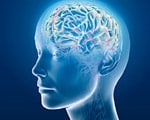In the three months after a traumatic brain injury, the risk of stroke may increase 10-fold.

Traumatic brain injury has not been included among the usual stroke risk factors in the past. The mechanism is still not clear, but deserves further investigation.
Patients with traumatic brain injury can have other complications, such as ruptured or torn arteries, cardiac injuries or blood clotting disturbances, that increase the risk of stroke. Because impairment following traumatic brain injury may be invisible, the condition is sometimes described as a silent epidemic.
Researchers collected data on 23,199 people in Taiwan who suffered a traumatic brain injury between 2001 and 2003. They compared these patients with 69,597 patients without traumatic brain injury. Among those with a traumatic brain injury, 3 percent had a stroke within the first three months after the injury, compared with 0.5 percent of those who had not experienced traumatic brain injury. Over time, however, the risk of stroke diminished among those with traumatic brain injuries. After a year, the risk was 5 times greater, and after five years it was 2 times greater for these patients than for people without traumatic brain injury.
A fractured skull significantly boosted stroke risk. Within three months of a skull fracture, the risk for stroke was 20 times higher than for brain-injured patients with no skull fracture. Also, patients with a traumatic brain injury were at greater risk for bleeding in the brain, compared with people who had not experienced traumatic brain injury. The brain-injured patients also were more likely to have high blood pressure, diabetes, coronary heart disease, atrial fibrillation and heart failure than non-traumatic brain injury patients.
Stroke is the most serious and disabling neurological disorder worldwide. This study leads the way in identifying stroke as an additional neurological problem that may arise following traumatic brain injury. Early neuroimaging examinations, such as MRI, and intensive monitoring should be standard in the first few months and years after a traumatic brain injury.
DoctorNDTV is the one stop site for all your health needs providing the most credible health information, health news and tips with expert advice on healthy living, diet plans, informative videos etc. You can get the most relevant and accurate info you need about health problems like diabetes, cancer, pregnancy, HIV and AIDS, weight loss and many other lifestyle diseases. We have a panel of over 350 experts who help us develop content by giving their valuable inputs and bringing to us the latest in the world of healthcare.












